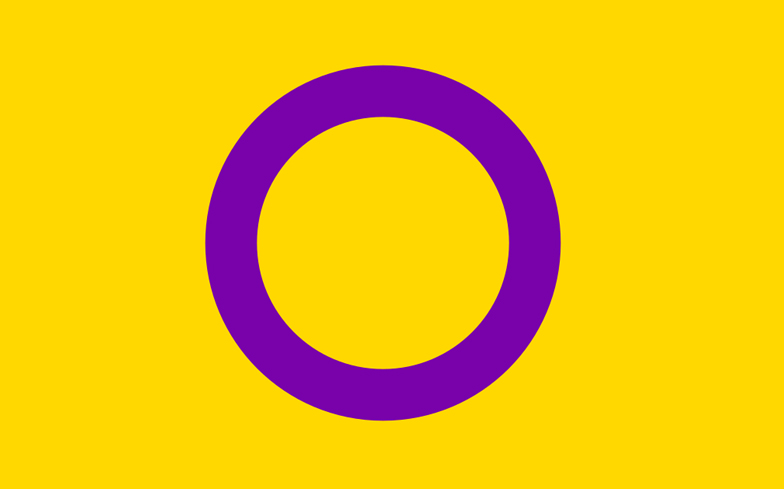
“I was of an age that I remember some of the surgeries and the times when I was recorded or examined in front of medical students. The nature of these surgeries was kept secret from me by doctors and family, despite my asking about them on numerous occasions throughout adulthood. It was only seven years ago that I retrieved my medical records, which explained the secrecy.”
(Sara Gillingham, Intersex Activist)
Intersex Day of Remembrance is celebrated on 8 November.
It marks the birthday of Herculine Barban, a French intersex person who lived from 1838 to 1868. Her memoirs, combined with additional research, were published by Michel Foucault in the 1970s as Herculine Barbin: Being the Recently Discovered Memoirs of a Nineteenth-century French Hermaphrodite.
An intersex person does not fit the typical definition of male or female. They may have variations in their chromosomes, genitals or internal organs like testes or ovaries. Many intersex people chose to identify as male or female. Others describe themselves as intersex, or use the broader term queer. Worldwide, roughly the same proportion of people are born intersex as have red hair. Intersex Day of Remembrance shines a spotlight on the unnecessary medical operations intersex people have been subjected to, as well as the other issues they face.
It was only after speaking to Sara Gillingham, an intersex campaigner, that I realised the level of ignorance, shame and lack of support still faced by intersex people in the UK. Sara describes herself as a “survivor” of non-consensual surgeries.
It is not unusual for intersex people to have suffered surgeries from doctors seeking to “normalise” their physical characteristics. This is sometimes done at birth, or during puberty, but often without the consent of the individual or their parents. A common procedure is the removal of the testes, so that an intersex person can then be raised as a female. Frequently the medical reasons for intervention are kept a secret from patients and their families, as in Sara’s case, where her parents were only given partial information and she was given none at all.
In this area, many health professionals seem to be living in a vacuum. A fairly mainstream expression for intersex people within the medical community is to describe them as having a “disorder of sex development.” My personal view is that this antiquated language has no place in twenty-first-century Britain and is not something that intersex people should be subjected to.
Doctors often tell parents that they should not reveal to other people that their child is intersex, so this creates an atmosphere of fear and repression from day one. It can subsequently be very hard for intersex people to find one another, as they had been taught in the past not to discuss being intersex. This can lead to feelings of isolation and low self-worth.
In terms of the population generally, a key problem is confusion around trans and intersex identities. To clarify, trans concerns gender identity, whereas intersex is to do with biological characteristics. Many intersex people do feel an affinity with trans people, as they have had to fight similar battles and both groups encounter a lot of stigma. A key difference is that intersex people have often been the subject of surgeries they did not want, whilst trans people have had to fight for surgeries they do want.
Intersex people are intersexy. I noticed the catchy phrase on Twitter and wanted to end this piece on a positive note, but it is clear that the challenges faced by intersex people are very real. Like many intersex people, Sara underwent unnecessary medical procedures. As a community we need to be more aware of intersex issues and more vocal for their rights.
The Ozanne Foundation has organised a seminar on 8 December entitled Faith, Science and Sexuality, where Sara will be speaking. If you are interested then please check out the Ozanne Foundation’s website.



